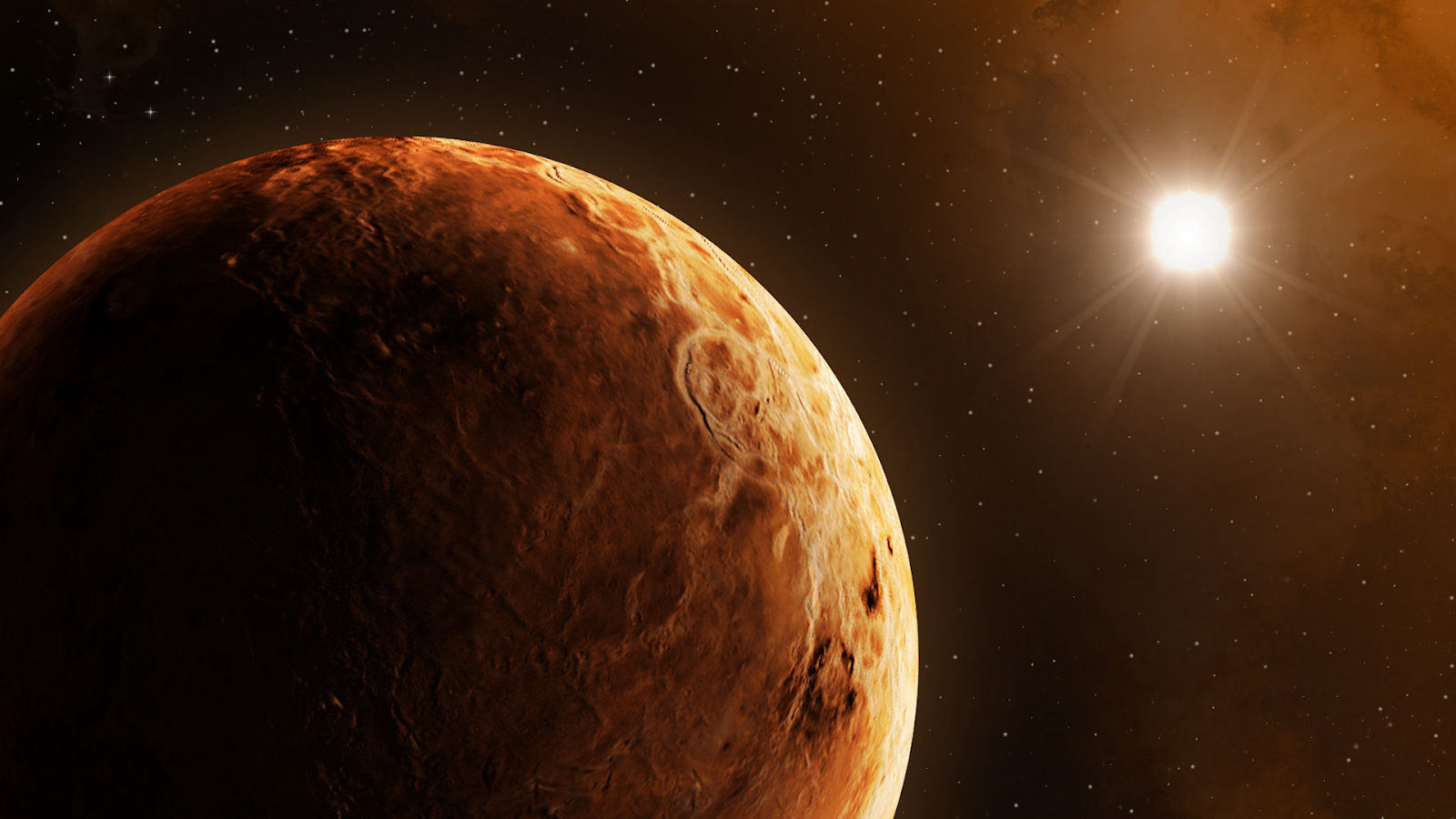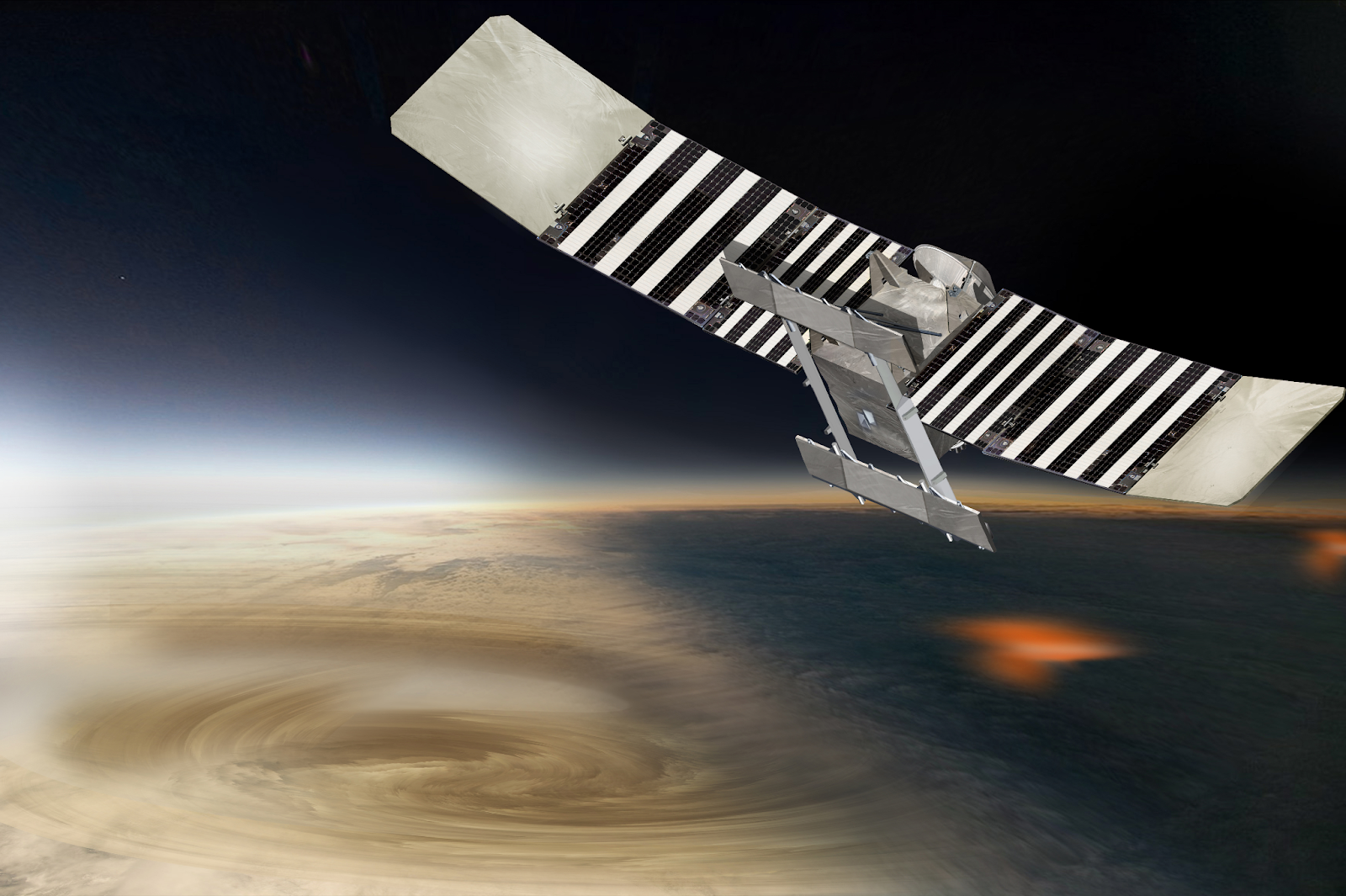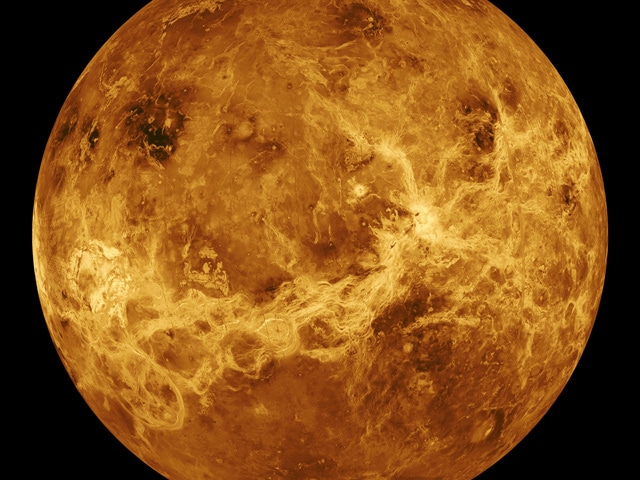According to a research paper released by the National Aeronautics and Space Administration (NASA), volcanism may be responsible for the changing climate of ancient Venus. “By understanding the record of large igneous provinces on Earth and Venus, we can determine if these events may have caused Venus’ present condition,” said Dr. Michael J. Way, of NASA’s Goddard Institute for Space Studies

A volcanic event can last for hundreds and thousands of years. As a result, volcanic rock can be deposited on the surface in quantities of more than 100,000 cubic miles. This amount of molten rock has the potential to be sufficient to bury the whole state of Texas. Currently, Venus has an atmosphere with a surface pressure 90 times more than that of Earth and an average surface temperature of 864 F.
The study suggests that these extreme volcanic eruptions may have caused these circumstances at some point in Venus’ distant past. For instance, a runaway greenhouse effect that sparked the planet’s shift from wet and temperate to hot and dry might have been caused by several such eruptions occurring within a short period of geologic time

Around 80% of Venus’ surface is made up of vast areas of solidified volcanic rock. While scientists are unsure of the frequency of the events that gave rise to these fields, Way stated that they should be able to pinpoint it by looking at Earth’s history.
Since the beginning of multicellular life around 540 million years ago, there have been at least five significant mass extinction events that have each wiped off more than 50% of the animal life on Earth. According to certain analyses, the majority of these extinction events were caused by the same types of eruptions that created Venus-like large-scale igneous provinces. Why some Earthly events did not result in runaway greenhouse effects like those on Venus is still a mystery to scientists.

Along with the Venus Emissivity, Radio Science, InSAR, Topography, and Spectroscopy (VERITAS) project, NASA is planning for the Deep Atmosphere Venus Investigation of Noble gases, Chemistry, and Imaging (DAVINCI) mission to Venus. Scientists believe that by completing this expedition, they will be able to thoroughly examine the planet’s past, present, and future to solve the enigma. The DAVINCI project will launch ahead of VERITAS, a mission to study the surface of Venus in high detail. It will look down on the planet’s surface and interior to learn more about its volcanic and volatile past and how it evolved into the world we know today.
Read More: The current collegium system is out of sync and needs to revamp, says Mukul Rohatgi













